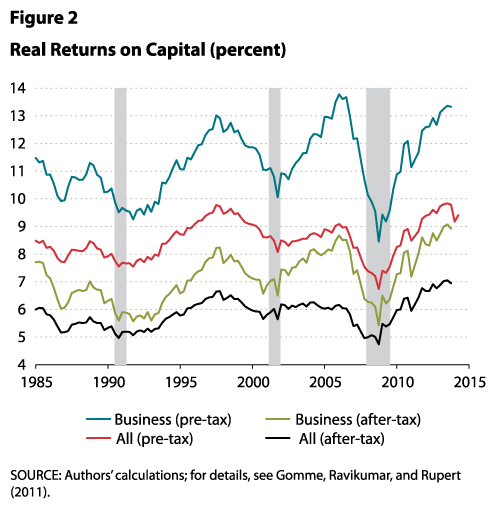The Theory of Business Enterprises Part 5: A Legal System That Supports Businessmen
In Chapter 8 of The Theory of Business Enterprises, Thorstein Veblen takes up the political and legal systems of the US. Both are designed to support business at the expense of everyone and everything else. By 1904, people were used to thinking about almost everything in terms of money, and that means that “… the management of the affairs of the community at large falls by common consent into the hands of business men and is guided by business considerations.” And that’s true of both national and international matters.
He claims that this habit of mind is reinforced by the doctrines of Natural Liberty, a reference to the theory of John Locke, which I discuss here. Locke’s theory was formed at a time when production was dominated by the artisan and the small farmer. He argued that the worker, these individual small producers, were entitled by the principles of Natural Liberty to own the things they produced, whether it was the blacksmith, the cobbler, or the weaver/dyer. Locke was concerned to protect their production from the monarch, whose absolute power was backed up with troops. Apparently teh landlord was entitled to rent, and to a share of the produce of tenants, but never mind why, exactly. That notion carried over to industrial production, so that the owner of the factory was entitled to the goods produced by the workers. Veblen refers to this as a metaphysical theory, but it obviously doesn’t explain much.
The unquestioned idea that property rights are part of Natural Liberty survived the days of artisans and small farmers, where they made some kind of sense. The common people could be said to be free in the sense that they controlled their hours of work and the methods of production. The idea carried over into the era of industrial production, where businessmen controlled much more of the work and private life of the worker. It meant that the arrangements of industrial production could not be interpreted as unlawful coercion. Workers were free to take whatever work was available at whatever price. They not entitled to any of the goods produced, directly or indirectly, but only to a wage, if the capitalist actually paid one. Or, they could starve. We’ve seen this before. https://www.emptywheel.net/2015/11/17/the-great-transformation-part-6-labor-as-a-fictitious-commodity/
Veblen offers this explanation for the willingness of the workers to put up with this arrangement. It’s like the manorial system, where the workers thought, he says, that the production remained with the feudal lord, and thus increased the wealth of the group, and that was good for the peasantry. Also, the feudal lord provided protection to the peasants, for which they were grateful. This in turn looks like patriotism. These two ideas of property and patriotism in led the common people to feel as though they had “some sort of metaphysical share in the gains which accrue to the business men who are citizens of the same ‘commonwealth’; so that whatever policy furthers [their] commercial gains … is felt to be beneficial to all the rest of the population.” Or, as he puts it later when discussing the governmental support for all things business,
And in its solicitude for the business men’s interests it is borne out by current public sentiment, for there is a naive, unquestioning persuasion abroad among the body of the people to the effect that, in some occult way, the material interests of the populace coincide with the pecuniary interests of those business men who live within the scope of the same set of governmental contrivances.
“Some occult way”, a lovely description of much economic theory.
The main function of the law is to insure that the interests of business men are protected. In large part, that means enforcing “freedom of contract”. That means the freedom of the workers to enter into whatever contract they choose. The reality is that workers don’t have much in the way of freedom, and the businessmen were free to offer whatever terms they chose. The pressure on the workers was pecuniary, and therefore wasn’t assault and battery nor breach of any contract. Consequently the law had no interest in the matter. If the jury of workers objected to this interpretation of the law, and ruled in favor of a worker injured on the job, that was because their vulgar minds couldn’t grasp the grandeur of the rules of Natural Liberty, and they would be quickly corrected by the superior minds of the Judiciary.
Veblen’s view was to receive confirmation the very next year in the now famous case of Lochner v. New York, 198 S.Ct. 45 (1905), where SCOTUS upheld the freedom of bakers to work more than 60 hours a week despite a New York statute designed to protect their health and safety. The case is famous for the dissent filed by Justice Oliver Wendell Holmes, who claimed that the majority decided the case on the basis of “…an economic theory which a large part of the country does not entertain.” Also, it was decided under the Fourteenth Amendment, just the first of a long string of horrible misuses of that Amendment.
Here’s Veblen’s view of the results:
De facto freedom of choice is a matter about which the law and the courts are not competent to inquire. By force of the concatenation of industrial processes and the dependence of men’s comfort or subsistence upon the orderly working of these processes, the exercise of the rights of ownership in the interests of business may traverse the de facto necessities of a group or class; it may even traverse the needs of the community at large, as, e.g., in the conceivable case of an advisedly instituted coal famine; but since these necessities, of comfort or of livelihood, cannot be formulated in terms of the natural freedom of contract, they can, in the nature of the case, give rise to no cognizable grievance and find no legal remedy.
Veblen doesn’t mention one ground of support for property rights that seems important to me: That’s Mine!. This may be the most deep-seated view that any of us has, and the idea that we have to share anything, including the very air we breathe, seems unfair to many of us. I can do what I want with my property, so If I want to paint my house with polka dots, hand a garish sign on my shop, or poison the air and water, and lie about it, that’s my right and you can’t stop me. The natural extension of that idea is that businessmen can do whatever they want with their property, just like I can with mine, and screw the community.
With that background, and with a grasp of how firmly it’s held, we can begin to understand how the neoliberals found a strong basis for their reworking of neoclassical economics into the force it has here today. Natural Liberty reinforces That’s Mine to create loathing for any intrusion on the freedom to do what one wants with one’s property. Everyone agrees that the proper role of government is to enforce those property rights. And that is the real ground of property rights: raw power. Locke makes a metaphysical argument, but the Monarch had armed troops. If Locke’s conception prevailed, it was because the power to command those troops to seize property and give it to the monarch had been eliminated.
In the US, private property is protected by the Constitution, and all levels of government enforce that protection zealously. Laws that restrain the use of property to damage the community are not enforced zealously, as we know from the aftermath of the Great Crash and the rate of rise of prices of pharmaceutical drugs. This is a deeply stupid and dangerous arrangement of priorities.



